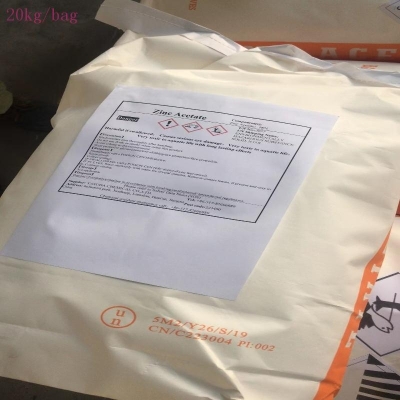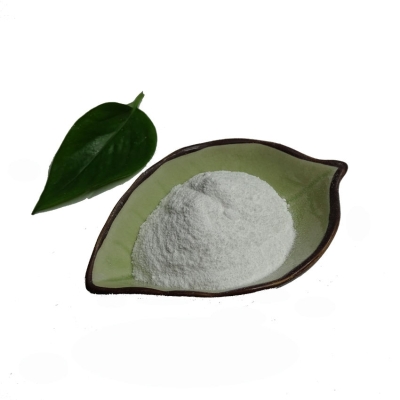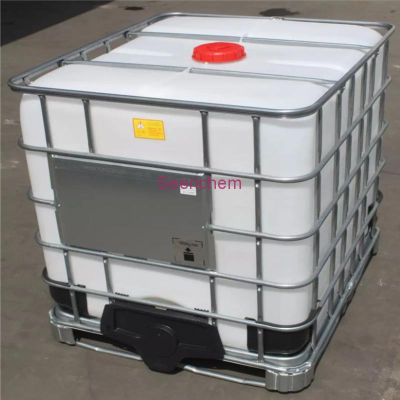-
Categories
-
Pharmaceutical Intermediates
-
Active Pharmaceutical Ingredients
-
Food Additives
- Industrial Coatings
- Agrochemicals
- Dyes and Pigments
- Surfactant
- Flavors and Fragrances
- Chemical Reagents
- Catalyst and Auxiliary
- Natural Products
- Inorganic Chemistry
-
Organic Chemistry
-
Biochemical Engineering
- Analytical Chemistry
-
Cosmetic Ingredient
- Water Treatment Chemical
-
Pharmaceutical Intermediates
Promotion
ECHEMI Mall
Wholesale
Weekly Price
Exhibition
News
-
Trade Service
Since May, the research team on the structural reform of the fertilizer supply side has successively visited large fertilizer companies such as Jiangsu Huachang, Anhui Six Countries, and Hubei Xinyangfeng.
During the investigation, the reporter learned that "going global" has become a strategic choice for Chinese fertilizer companies to implement supply-side reforms.
However, as the international competitiveness of China's nitrogen and phosphate fertilizers is gradually weakening, companies call on the country to cancel exports of ternary compound fertilizers.
Tariff, use China's high-tech compound fertilizer to meet the high demand of the international market, especially the Southeast Asian countries along the “Belt and Road”.
In terms of compound fertilizer export business, Jiangsu Huachang has maintained its position as the largest export company for three consecutive years.
In order to expand the international market share and export China’s fertilizer development experience, Huachang has established a joint venture in Malaysia to promote the use of ammonium chloride and sulfuric acid.
A formula fertilizer with ammonium by-product nitrogen fertilizer as the main nitrogen source, replicating China's experience in soil testing and formula fertilization.
Hubei Xinyangfeng's international sales channels have also been expanding in recent years, with export markets covering nearly 30 countries and regions on five continents.
"The policy of imposing a 20% ad valorem tariff on the export of ternary compound fertilizers has led us to export compound fertilizers from countries along the'Belt and Road’ routes to only binary compound fertilizers.
In fact, foreign growers are also very concerned about China’s ternary compound fertilizers.
Recognized.
" said Zhao Chengyun, vice president of Hubei Xinyangfeng Fertilizer Co.
, Ltd.
It is reported that since 2017, the country has cancelled export tariffs on nitrogen and phosphate fertilizers, and the export of NPK ternary compound fertilizers is still subject to a 20% ad valorem tariff.
Hu Bo, general manager of Jiangsu Huachang Chemical Co.
, Ltd.
, believes that this does hinder the supply-side reform of the fertilizer industry.
He called on the country to consider further reducing or even abolishing export tariffs on ternary compound fertilizers under the "One Belt One Road" initiative.
Jiang Yuanhua, Secretary of the Party Committee, Chairman and General Manager of Yihua Group, and Miao Zhenhu, Secretary of the Party Committee and General Manager of the Six Nations Chemical Industry Group also stated that it is necessary for the state to cancel export tariffs on ternary compound fertilizers.
Mao Guobin, deputy general manager of Hubei Sanning Chemical Co.
, Ltd.
, believes that from a global perspective, potash fertilizer is surplus.
Chinese fertilizer companies process imported potash fertilizer into high-quality ternary compound fertilizer and sell it to the international market.
The country should encourage it.
It doesn't make sense.
not support.
Zhao Chengyun also calculated an account to illustrate the feasibility of the country's liberalization of ternary compound fertilizer exports: importing 1 ton of potash fertilizer (60% K2O) can produce 4 tons of compound fertilizer (potassium content 15% K2O), tariffs are abolished, and China's annual maximum To export 1 million tons of ternary compound fertilizer, only need to import 250,000 tons of potash fertilizer.
"There are no tariffs on nitrogen and phosphorus.
Even if the tariffs on ternary compound fertilizers cannot be eliminated, the tariffs on nitrogen and phosphorus should be deducted.
This can greatly reduce the tariffs on ternary compound fertilizers.
Exporting ternary compound fertilizers can be said to be a disguised form.
Ground The excess capacity of nitrogen and phosphorus has also been exported.
As for the country’s concern that exports will lead to a shortage of domestic potash fertilizer, I think it is unlikely to happen.
One is that China's potash self-sufficiency rate has increased to more than 60%, and the other is that international traders will not give up China's such a large market in any way.
The elimination of export tariffs on ternary compound fertilizers is definitely a good thing for the industry.
"Zhao Chengyun said.
Cui Xuejun, president of China Chemical Industry News, who participated in the survey, Zhou Cunyang, deputy secretary general of the National Agricultural Science and Technology Innovation Alliance for High-Efficiency Compound Fertilizers, and the head of the Nitrogen Fertilizer and Phosphate Fertilizer Association also believe that enterprises can avoid the elimination or reduction of tariffs on ternary compound fertilizers.
The risk of overseas investment and construction of factories can also create more job opportunities in China, which is beneficial to the reform of the supply side of fertilizer companies.
The research on the structural reform of the fertilizer supply side is conducted by the Plant Industry Management Department of the Ministry of Agriculture, the Department of Raw Materials Industry of the Ministry of Industry and Information Technology, and China Petroleum and Chemical Industry Guidance of the Federation, China Chemical Industry News, National Agricultural Technology Promotion Center, China Nitrogen Fertilizer Industry Association, China Phosphate and Compound Fertilizer Industry Association, China Plant Nutrition and Fertilizer Society, National Agricultural Science and Technology Innovation Alliance for High-Efficiency Compound Fertilizers, China Chemical Industry Development Research Institute, Jinzheng 8 units including large groups jointly initiated and implemented.
During the investigation, the reporter learned that "going global" has become a strategic choice for Chinese fertilizer companies to implement supply-side reforms.
However, as the international competitiveness of China's nitrogen and phosphate fertilizers is gradually weakening, companies call on the country to cancel exports of ternary compound fertilizers.
Tariff, use China's high-tech compound fertilizer to meet the high demand of the international market, especially the Southeast Asian countries along the “Belt and Road”.
In terms of compound fertilizer export business, Jiangsu Huachang has maintained its position as the largest export company for three consecutive years.
In order to expand the international market share and export China’s fertilizer development experience, Huachang has established a joint venture in Malaysia to promote the use of ammonium chloride and sulfuric acid.
A formula fertilizer with ammonium by-product nitrogen fertilizer as the main nitrogen source, replicating China's experience in soil testing and formula fertilization.
Hubei Xinyangfeng's international sales channels have also been expanding in recent years, with export markets covering nearly 30 countries and regions on five continents.
"The policy of imposing a 20% ad valorem tariff on the export of ternary compound fertilizers has led us to export compound fertilizers from countries along the'Belt and Road’ routes to only binary compound fertilizers.
In fact, foreign growers are also very concerned about China’s ternary compound fertilizers.
Recognized.
" said Zhao Chengyun, vice president of Hubei Xinyangfeng Fertilizer Co.
, Ltd.
It is reported that since 2017, the country has cancelled export tariffs on nitrogen and phosphate fertilizers, and the export of NPK ternary compound fertilizers is still subject to a 20% ad valorem tariff.
Hu Bo, general manager of Jiangsu Huachang Chemical Co.
, Ltd.
, believes that this does hinder the supply-side reform of the fertilizer industry.
He called on the country to consider further reducing or even abolishing export tariffs on ternary compound fertilizers under the "One Belt One Road" initiative.
Jiang Yuanhua, Secretary of the Party Committee, Chairman and General Manager of Yihua Group, and Miao Zhenhu, Secretary of the Party Committee and General Manager of the Six Nations Chemical Industry Group also stated that it is necessary for the state to cancel export tariffs on ternary compound fertilizers.
Mao Guobin, deputy general manager of Hubei Sanning Chemical Co.
, Ltd.
, believes that from a global perspective, potash fertilizer is surplus.
Chinese fertilizer companies process imported potash fertilizer into high-quality ternary compound fertilizer and sell it to the international market.
The country should encourage it.
It doesn't make sense.
not support.
Zhao Chengyun also calculated an account to illustrate the feasibility of the country's liberalization of ternary compound fertilizer exports: importing 1 ton of potash fertilizer (60% K2O) can produce 4 tons of compound fertilizer (potassium content 15% K2O), tariffs are abolished, and China's annual maximum To export 1 million tons of ternary compound fertilizer, only need to import 250,000 tons of potash fertilizer.
"There are no tariffs on nitrogen and phosphorus.
Even if the tariffs on ternary compound fertilizers cannot be eliminated, the tariffs on nitrogen and phosphorus should be deducted.
This can greatly reduce the tariffs on ternary compound fertilizers.
Exporting ternary compound fertilizers can be said to be a disguised form.
Ground The excess capacity of nitrogen and phosphorus has also been exported.
As for the country’s concern that exports will lead to a shortage of domestic potash fertilizer, I think it is unlikely to happen.
One is that China's potash self-sufficiency rate has increased to more than 60%, and the other is that international traders will not give up China's such a large market in any way.
The elimination of export tariffs on ternary compound fertilizers is definitely a good thing for the industry.
"Zhao Chengyun said.
Cui Xuejun, president of China Chemical Industry News, who participated in the survey, Zhou Cunyang, deputy secretary general of the National Agricultural Science and Technology Innovation Alliance for High-Efficiency Compound Fertilizers, and the head of the Nitrogen Fertilizer and Phosphate Fertilizer Association also believe that enterprises can avoid the elimination or reduction of tariffs on ternary compound fertilizers.
The risk of overseas investment and construction of factories can also create more job opportunities in China, which is beneficial to the reform of the supply side of fertilizer companies.
The research on the structural reform of the fertilizer supply side is conducted by the Plant Industry Management Department of the Ministry of Agriculture, the Department of Raw Materials Industry of the Ministry of Industry and Information Technology, and China Petroleum and Chemical Industry Guidance of the Federation, China Chemical Industry News, National Agricultural Technology Promotion Center, China Nitrogen Fertilizer Industry Association, China Phosphate and Compound Fertilizer Industry Association, China Plant Nutrition and Fertilizer Society, National Agricultural Science and Technology Innovation Alliance for High-Efficiency Compound Fertilizers, China Chemical Industry Development Research Institute, Jinzheng 8 units including large groups jointly initiated and implemented.







